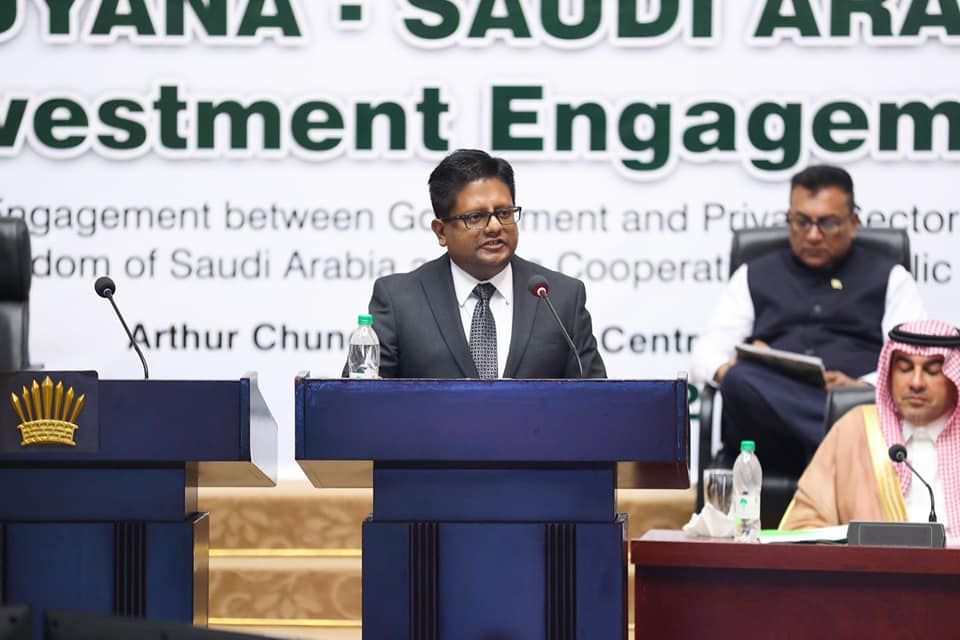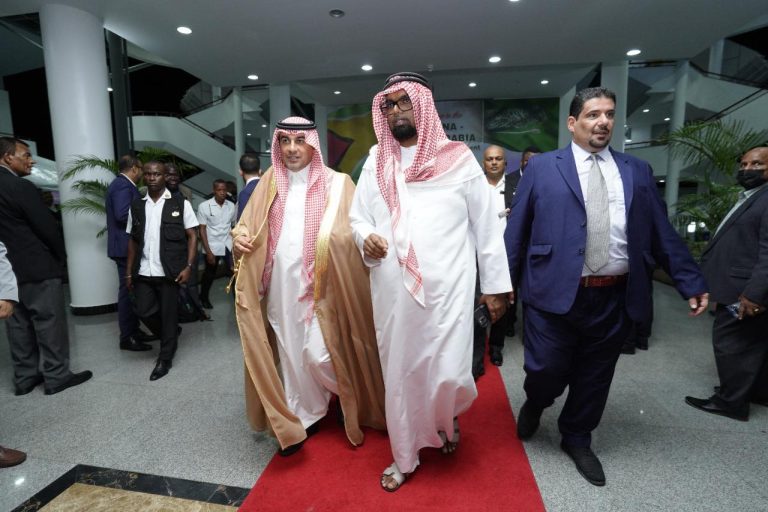Guyana now expects economic growth at 57.8%; producing 350,000 barrels of oil per day

Finance Minister Dr. Ashni Singh [Photo: Department of Public Information]
Up from the 47.5 per cent economic growth projected for Guyana in the 2022 national budget, the country now expects a growth rate above that, standing at 57.8 per cent, Finance Minister Dr. Ashni Singh said Saturday.
The announcement comes even as the mid-year report is yet to be released but also with some 350, 000 barrels of oil being produced per day in the offshore basin of the new oil-producing nation.
Dr. Singh made the revelations as he addressed a visiting 65-member strong delegation from the public and private sectors of Saudi Arabia scooping investment opportunities in Guyana.
In his budget speech back in January 2022, Dr. Singh’s projection for economic growth stood at 47.5 per cent. The World Bank had also revised the country’s growth projection to 49.7 per cent.
On Saturday, Dr. Singh confirmed that the newest projections stood at 57.8 per cent.
Singh boasted of the country’s oil wealth of 11 billion barrels of proven reserves and still counting.
That has placed Guyana as the fastest growing economy with the third-largest reserves in Latin America and the Caribbean and the 17th in the world.
“With ramped up oil production Guyana is the fastest growing economy in the world,” Dr. Singh said.
It is supported by the start-up of Phase 2 of the Liza Development with the arrival of the Liza Unity floating, production, storage, and offloading (FPSO) vessel in October 2021.
The finance minister told the Saudi investors that Guyana is expected to exceed the production of one million barrels of oil per day by 2029.
The start-up of Phase 2 of the Liza Development has pushed daily output in South America’s newest oil-producing nation to above 300,000 barrels per day.
Dr. Singh also drew attention to the country’s strong non-oil sector which is expected to grow by 7.7% this year, building on the 4.6 growth recorded last year.
The finance minister said Guyana was expected to outperform regional and global averages.
He used the opportunity on Saturday to lay out an array of areas for investment in Guyana’s non-oil sectors.
“Our government, even in our earliest days of oil production, we have placed the highest level of importance on a strong non-oil economy. Our policies are focused on developing the traditional pillars of our economy and catalysing a rapidly growing, and highly competitive non-oil economy,” Dr. Singh said.

